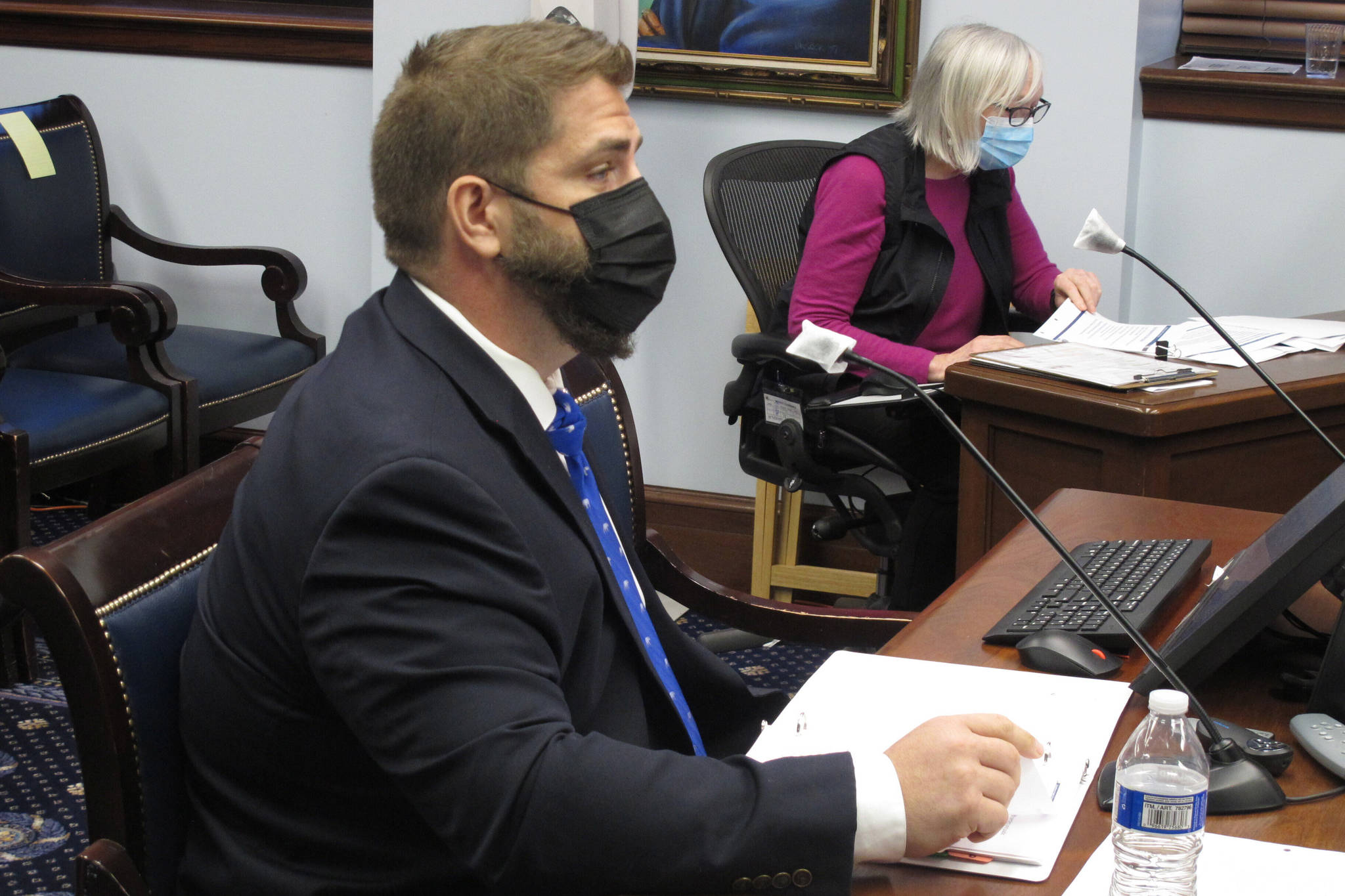• By Adam Crum
Last week, Alaska marked the one-year anniversary of our state’s public health disaster emergency declaration, first enacted on March 11, 2020. On the same day, the World Health Organization declared COVID-19 a pandemic and the National Basketball Association suspended all basketball games after a Utah Jazz player tested positive.
A day later, on March 12, 2020, Alaska announced its first positive COVID-19 case in a nonresident cargo pilot. Then, on March 13, 2020, former President Trump declared a national state of emergency to help fight the pandemic and enacted travel restrictions on non-U.S. citizens traveling from 26 European countries.
Emotions still run high as we recall the fear and uncertainty of the pandemic’s initial days, the ways our lives have been upended since then, the tens of thousands of Alaskans who became ill and of course, the 306 Alaskans who were among the 2.7 million lives lost globally from COVID-19. Despite the trauma we’ve lived through this past year, Alaskans should feel a sense of pride about how we came together and collectively responded to the worst public health crisis in our lifetime.
The one-year anniversary is especially poignant for those who suffered personal loss and for the health care workers and other essential employees whose personal sacrifices and courage have carried us through the worst of it.
In Alaska, as we prepared on Jan. 28, 2020, for a plane full of Americans who were fleeing the virus’s epicenter in China to touch down in Anchorage to refuel, it was hard to imagine what was in store for us, and just how much our daily routines would soon be disrupted.
Our first patient convalesced and recovered here in Alaska and remained upbeat and gracious throughout his stay. We learned from him and from every other patient who followed. Alaska has since performed more than 1.8 million COVID-19 tests. More than 61,000 residents and nonresidents have tested positive and more than 1,300 people have been hospitalized with COVID-19. The size and scale of this virus remains difficult to comprehend.
For me, this anniversary provides a reflective opportunity to think about not only what happened in the past year, but how we can continue to move forward as a state. While we still have work to do to manage this ever-changing virus and its variants, we are hopeful the worst is behind us — a testament to Alaskans and their determination to overcome this ordeal.
COVID-19 disrupted our communities, professions, finances, families, schools and children in more ways than most of us expected. As tough and overwhelming as this was, we also witnessed incredible acts of humanity and service. We saw Alaskans pull together united around the common goal of defeating the virus while caring for the most vulnerable among us. So many acts of kindness were displayed that it is hard to list them all: neighbors delivering groceries to elderly neighbors, friends and families helping care for children while parents shifted to working from home, grassroots fundraisers for struggling small businesses and the list goes on. Truly, if the virus was meant to defeat our spirits, it failed to do so in Alaska.
One positive result from the coronavirus is the innovation we experienced and the partnerships that formed. New digital tools changed the way we communicate and work. Small businesses changed their operations to adapt to a completely different business model, in some cases overnight. In health care, we now know that we can go from essentially no effective treatment for a new virus to full-fledged, safe and effective vaccines in less than a year’s time. It is remarkable, unprecedented and speaks volumes to the success of American enterprise.
The one common thread throughout the past year, though, has been hope. Hope has carried us through difficult times and grows every day, with more Alaskans choosing vaccines to protect themselves and others from the virus. It is appropriate and even poetic that we appear to have turned the corner on this pandemic as the long haze of winter begins to fade, and we welcome back the sun to our northern state.
Today, roughly one in five Alaskans are fully vaccinated; over 200,000 people here have received at least one dose. The vaccines — combined with protective measures like hand washing, wearing a mask in public settings and social distancing — are doing their job, as reflected in the decline in daily positive cases.
As we reflect on the past year, let’s remember those who have suffered and those who have stepped up and made sacrifices to keep our communities going. Please keep this hope alive and stay the course, Alaska — we are so close. Above all, say a prayer or pause to reflect on what ultimately got us through the worst of this crisis: our families, our neighbors and communities, and the resilience of Alaska’s people.
Adam Crum, M.S.P.H., is commissioner of the Alaska Department of Health and Social Services.

